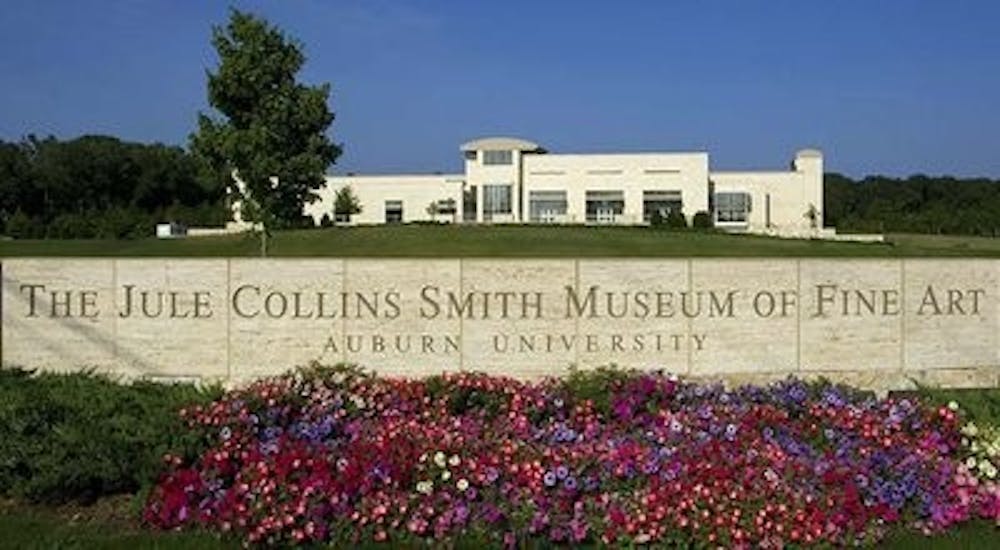The Jule Collins Smith Museum of Fine Art is opening a new exhibition Sept. 8 titled "Art Interrupted: Advancing American Art and the Politics of Cultural Diplomacy."
The exhibition features works by Georgia O'Keeffe, Milton Avery, Charles Sheeler and more and displays the works originally assembled by the U.S. Department of State in 1946 to represent advanced art of the time.
The exhibition opening coincides with the showing of "Ninotchka" on Thursday, Sept. 13 at 5:30 p.m. The showing is part of the Life Interrupted film series created by an Auburn University professor.
"Dr. Sunny Stalter and her intern worked with the curator of education at JCSM to develop a film series titled Life Interrupted," said Scott Bishop, curator of education at the museum.
Stalter created the series as a way to complement Art Interrupted by putting the works into a larger cultural context for viewers.
"We are showing five American films that help audience members understand what life was like around the time that the original Advancing American Art collection was put together," Stalter said.
The films are selected from recommendations by professors who come to introduce the film before the showing.
Stalter and her program assistant, Molly Powers, go through the recommendations.
"Each film will be introduced by a speaker who's an expert on some part of the cultural history that the movie addresses," Stalter said. "We'll have speakers in film studies, theater, Southern studies, military history and English."
Introducing the film and leading the discussion after the "Ninotchka" showing is Dr. Jennifer Fay, a film studies and English professor at Vanderbilt University.
Fay recommended the movie because of its role in the country's anti-Soviet campaign.
"The U.S. State Department shipped prints of "Ninotchka" to Italy during the elections when the U.S. feared a communist victory, and it played widely in U.S. occupied Germany in 1947-48 as part of a larger an anti-Communist campaign," Fay said.
Made in 1939, the movie stars Greta Garbo as a Russian woman brought up to believe in communism. When she goes to Paris, she falls in love with a man whose attitude goes against everything she was taught.
"It sounds like a straight up propagandistic film, but it also pokes fun of capitalism, government censorship and propaganda," Fay said. "So, using it as a form of propaganda was a rather risky venture."
The movie provides an example of how even lighthearted and witty movies can have serious political messages, Stalter said.
Fay said she will be delving deeper into the nature of the film's political messages in the discussion after the showing, as well as discussing some defining characteristics of movies made in the 1930s that are present in the film.
"I'm interested in the ways that this film actually does tell us something about American capitalism as the bedrock of American conceptions of democracy," Fay said. "I also want to discuss how the film makes use of satire as a political weapon."
Food and beverages are provided during the discussion portion of the evening, and Bishop said it will be a great event for anyone interested in popular culture, movies and American studies.
"I think people should attend the screenings because the movies that we chose are interesting and unique, the speakers are excited about discussing them, and the post film snacks will be tasty," Stalter said.
Art Interrupted: Advancing American Art and the Politics of Cultural Diplomacy will be at Jule Collins Smith Museum of Fine Art until Jan. 5 2013 and, as all exhibits at the museum are, is free and open to the public.
Do you like this story? The Plainsman doesn't accept money from tuition or student fees, and we don't charge a subscription fee. But you can donate to support The Plainsman.





